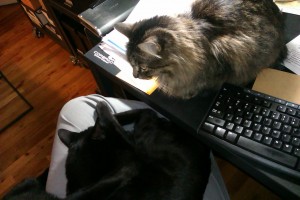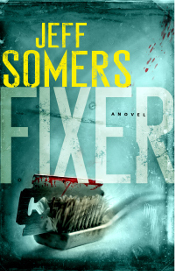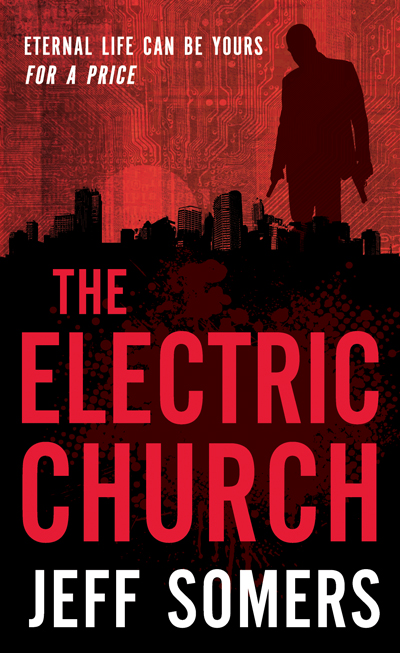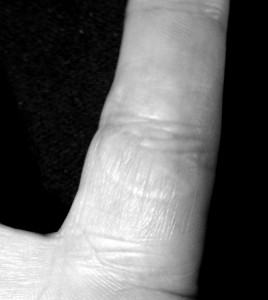Mrs. Muse: My Wife Thinks She is a Rich Vein of Material
This article originally appeared in The Inner Swine Volume 15, Issue 3/4, Winter 2009.
“You should write about this.”
I hear this phrase pretty often, usually when I am complaining about something The Duchess is making me do, like watching terrible reality television or following her from store to store in an endless shopping mall. My hell, I am convinced, will be an infinite shopping mall filled with women’s clothing stores. I used to think my hell would involve dried up beer taps and indoor league football, but now I am older and wiser and the ways of the universe are clearer to me.
At first, early in our relationship, she only used The Line when she truly believed that what she was putting me through was Inner Swine material—like most people, she thought at first that being mentioned in my zine would be kind of cool. Everyone gets quickly disabused of that notion, trust me, and it wasn’t long before she demanded her name be obscured in all issues so no one might Google her and discover her secret shame: That she is married to: Me.
Nowadays, The Line has a new function for The Duchess: She uses it as a way to justify any activity, no matter how torturous I find it. No matter how horrified I am at the turn my life has taken, I am assured that it’s all right because I can write an article about it.
The Marathon Man
Now, my wife is a fascinating, intelligent, feisty girl who is endlessly entertaining, and if I did not live in abject fear of being punished by her (she is stronger, faster, and in better shape than I ever will be; she runs marathons and works out and eats healthy—I drink gallons of booze and the last time my heart rate went up I was watching a baseball game and almost had a stroke) her antics and adventures would make admirable material for this zine.
This is a compliment. The more interesting you are, the more likely you will eventually be in this zine, albeit sometimes obscured.
Since this zine is primarily about me, I leave it as an exercise for the reader to determine what this says about my healthy and possibly delusional self-image.
However, this is getting out of hand when she starts justifying just about any mistreatment of her husband with the assurance that someday I will be able to use it as material for this zine. I make shit up for this zine; I don’t need material. I can walk to the grocery store, buy a loaf of bread and walk home, and make that entire experience into an article for this zine. Actually, I don’t even have to leave the house; I can just sit on the couch and stare at a wall and six months later there’s an article in this zine called Staring at the Wall: I Am Old and Dulled by Liquor which will be just six pages of me insulting myself in clever ways. See how this works? No actual experiences needed. It’s like Sir Laurence Olivier said to Dustin Hoffman on the set of The Marathon Man when Hoffman showed up to film a torture scene looking like hell because he’d stayed up 48 hours straight in order to be suitably exhausted for the scene: “My dear boy, have you tried acting?”
WAYS THE DUCHESS USES “THE LINE” TO JUSTIFY CRUELTY
1. Bad Television. I’ve complained before about the quality of the television programming The Duchess enjoys. I don’t mind sharing a little TV time now and then, and the fact that she favors shows I don’t much care for is just the way things are—she doesn’t like most of my choices, so it’s fair. But there are some shows that are just so terrible, so awesome in their terribleness, that I try to wriggle out of my husbandly duties to watch them.
And then she hits me with The Line, suggesting that I should watch Two and a Half Men and then write about how horrible it is. And it is. Horrible. It is.
2. Shopping. I’ve already defined my new vision of hell for you. Believe me, I get to live it every now and then, and my wife actually apologizes to me whenever she lures me into a store these days. Then, after apologizing, she suggests that my many sufferings at her hands in the retail world would be perfect fodder for an Inner Swine article. Do you see what I’m up against? I’ve taken to carrying a flask with me everywhere just in case it turns out we’re not going to the local Beerfest as promised, but instead to a sample sale.
3. Travel. My childish aversion to exploring the world is famed, and I’m sure some folks feel badly for The Duchess in that she has to beg and plead to get me to leave the comfort of my own house. Whenever I find myself in some godforsaken part of the world, going rapidly broke and—adding insult to injury—usually being led into some sort of foreign mall in order to purchase shoes, The Line is invariably tossed out as an impromptu justification for my treatment.
You can see, I’m sure, why it is that I drink. When any kind of horrifying shit can be justified as comedy material, you’re doomed.
Of course, The Duchess only wields this power in order to educate and improve me—and, actually, since I am now using all of these experiences to create content for this zine, I suppose, in the end, she’d been right all along.





 Right, we all know the drill now, right? I’m giving a plot seminar at The Writer’s Digest Annual Conference (
Right, we all know the drill now, right? I’m giving a plot seminar at The Writer’s Digest Annual Conference (